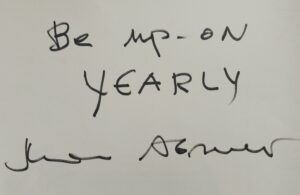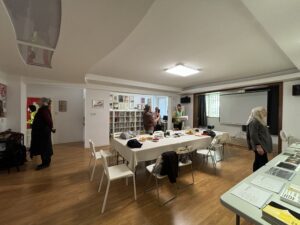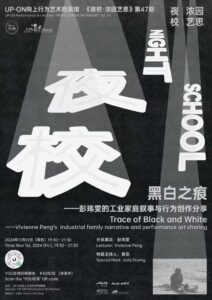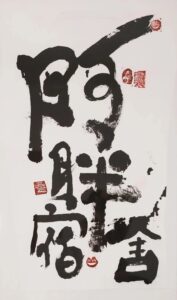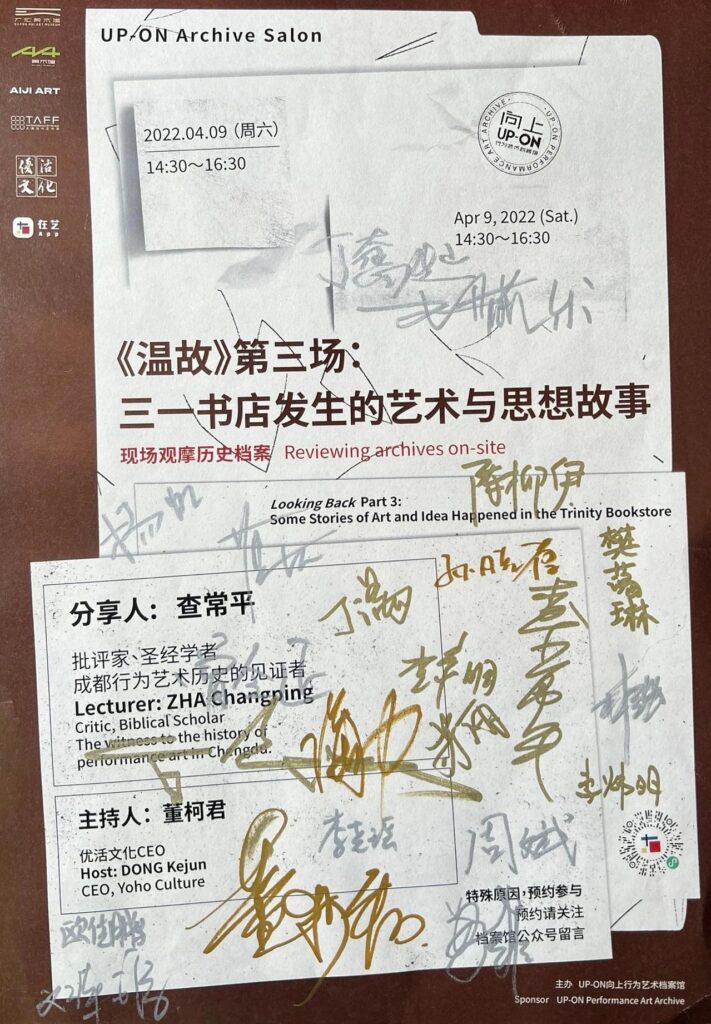
The “Looking back” series is the first thematic activity after the establishment of UP-ON Upward Performance Art Archive, and it will be a long-term project that will continue to be promoted.
Through organizing dialogues and discussions among experts and scholars, “Looking back” reviews the history of performance art in different regions of the world, with the intention of looking back at the history in order to have a more macroscopic conception of the future.
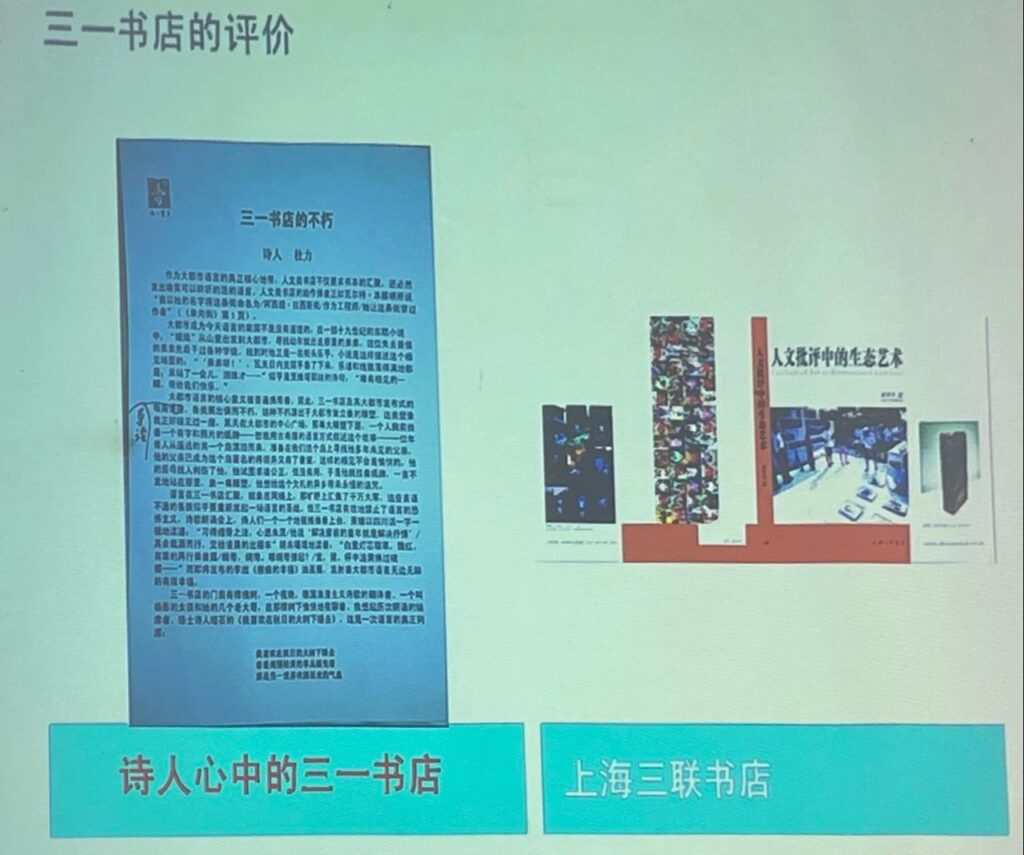
One year ago, at noon, photographer Li Jun took me on a short walk to a noodle shop he frequented for lunch. When I sat down and looked around, I felt a bit familiar, and the mezzanine structure in the room reminded me of the Trinity Bookstore twenty years ago.
The Trinity Bookstore was once an important base for pioneering art in Chengdu, where various cultural and artistic activities were staged in turn, and where many important events in the history of art and important masterpieces by artists were born. I checked with the owner of the noodle shop, and sure enough, it was! Sigh, time flies, things change, but the function has not changed much. In the past, it fed the spirit, but now it feeds the stomach and intestines. …… When Mr. Cha Changping was to be invited to introduce the story of art and thought in the Trinity Bookstore in the third scene of the Warm Tales, the old “Old Local Noodle House”, the former site of Trinity Bookstore, became a place of re-interpretation and reuse. The “Old Place Noodle House”, the former site of Trinity Bookstore, became the most appropriate place to share the story. Dong Kejun, the host of the “Warm Stories” sharing session, went to the noodle shop to talk to the owner about borrowing the venue, and it went surprisingly well. This is the charm of Chengdu, where the people are cheerful, easy-going, humorous, and willing to accept new things outside of their own experience!
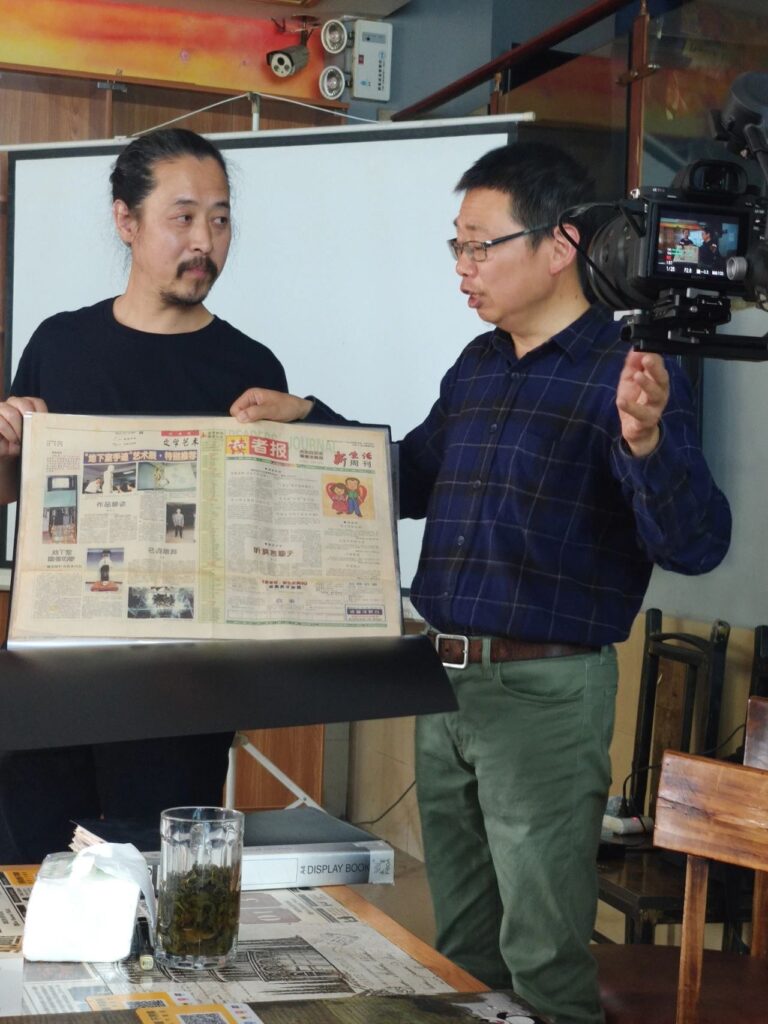
On April 9, 2022, at 2:30 p.m., the third session of Warm Up to the Past, “Stories of Art and Ideas from Trinity Bookstore,” was successfully held at the Old Local Noodle House. Mr. Cha Changping led us to reminisce about those past events twenty years ago, and the sound of his detailed explanation echoed in the noodle shop, and we were overwhelmed with emotion as the past corresponded to the reality.
After the sharing session, Mr. Cha Changping donated a large amount of precious historical documents to the archives, and Zhou Bin, on behalf of the archives, presented a collection certificate to express his sincere gratitude! These precious documents will be sorted out and archived to become public assets for everyone to read and study.
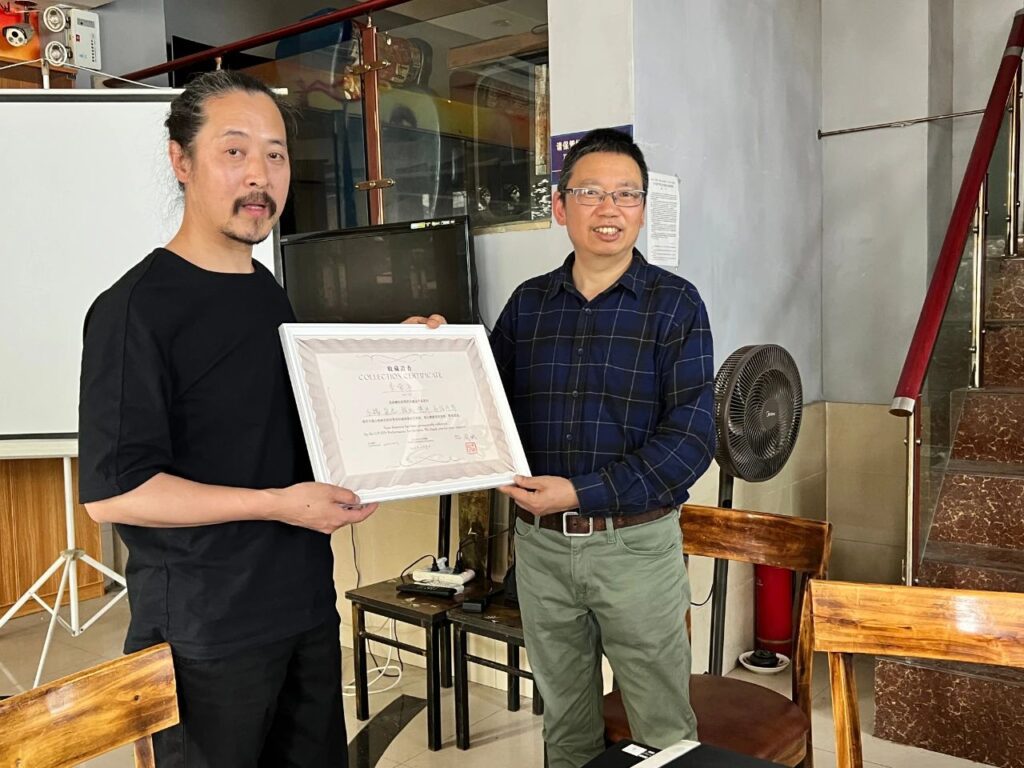
listener Sue:
It was a wonderful experience to witness a performance art sharing session at an eel noodle shop on a warm spring weekend. From the speaker Mr. Cha’s recollection of the cultural memory of Trinity Bookstore, the art scene that took place there at the beginning of the millennium emerged one by one.
Performance art in Chengdu in the 90s was widely noticed by the media as a cultural and social event, which is unimaginable for us today. I believe that the intervention of public issues is also the most worrying point for all of us nowadays. At the scene, I looked up the archive materials collected and organized by Mr. Cha over the years, and the simple exhibition signatures and artist’s manuscripts restored the artist’s self-expression of the feelings of existence at that time from his personal sensual experience. What attracted me to performance art was its free and open attitude, and its willingness to be provocative. I began to gradually feel why artists at that time had to express themselves to the extreme through their bodies, and realized the anxiety of losing social space for art. Terry Eagleton expressed the relationship between the body and politics in this way, “The body is both the focus of an important deepening of radical politics and a desperate displacement of radical politics.”
The platform built by the archives opens a window for individuals to understand that history can give us a great deal of confidence in the present. I envy the open and free 90s described by the witnesses of history, where artists paid attention to public social events and citizens’ daily lives, actively participated in speaking in public places, and took the initiative to exchange dialogues with citizens. I like the quote I read in “Performance Art Lessons”: “Awareness is a kind of rest, allowing you to transcend from your usual behaviors, to understand your deepest inner needs, to recognize your current stage of life, and to see it as an opportunity for development and change.”
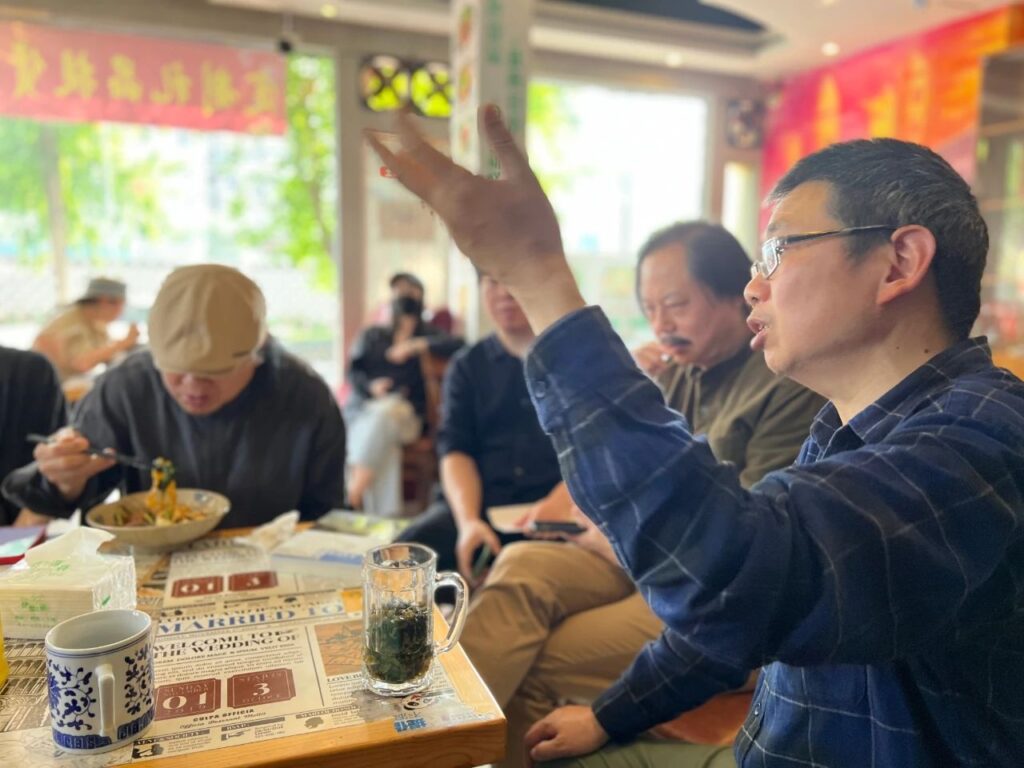
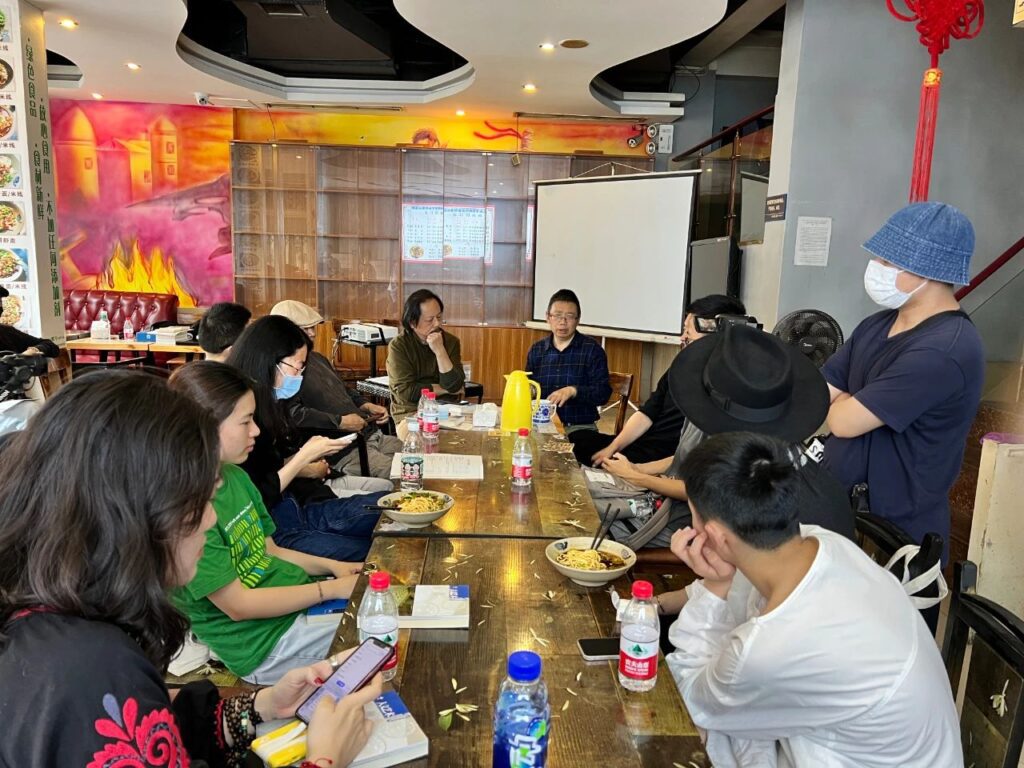

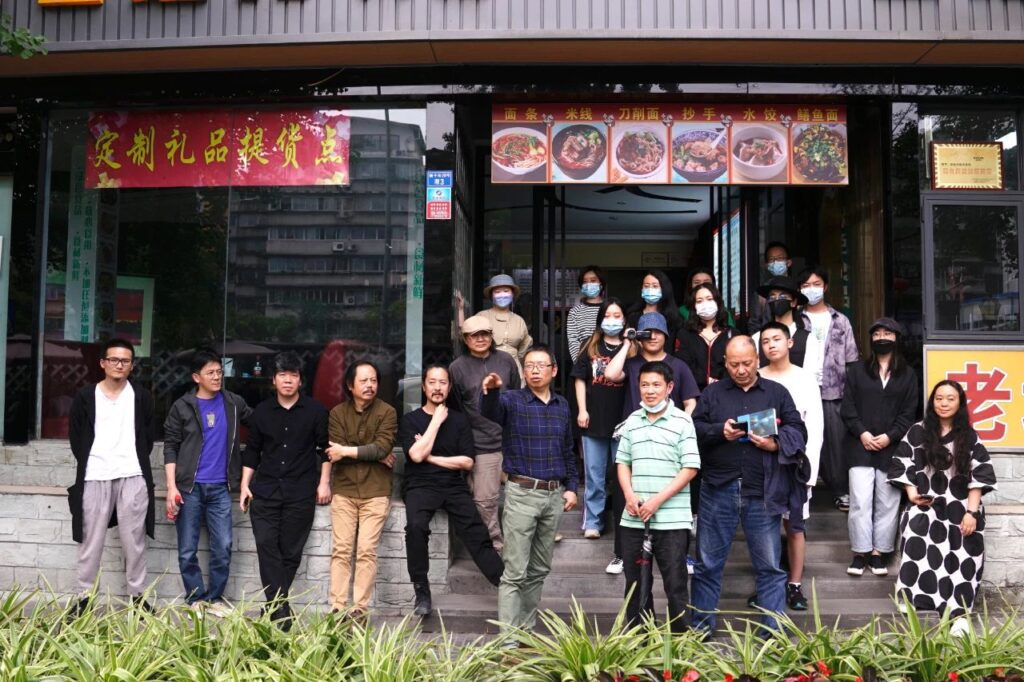
Group photo in front of the former Trinity Bookstore site

